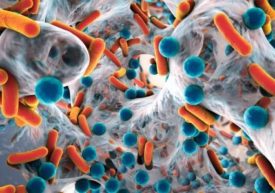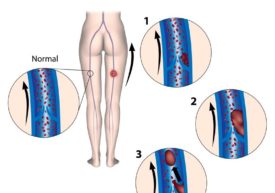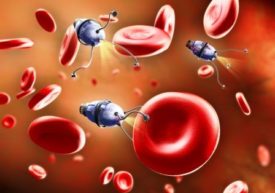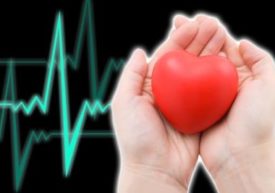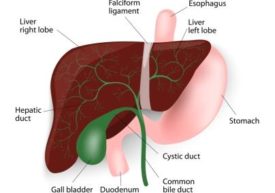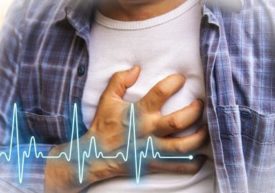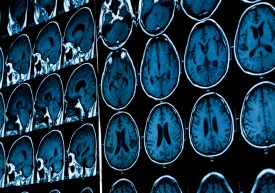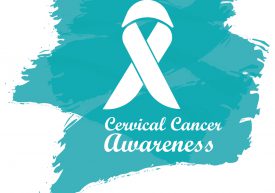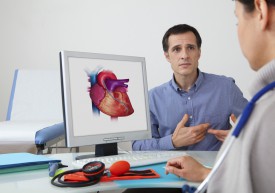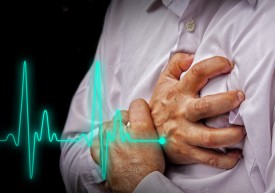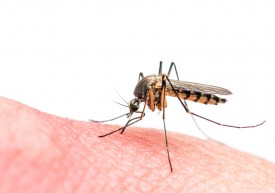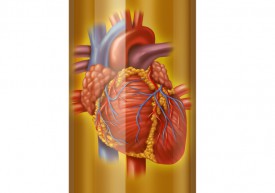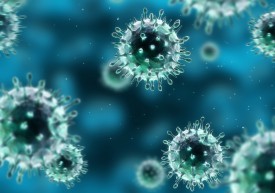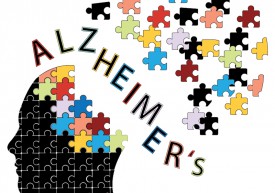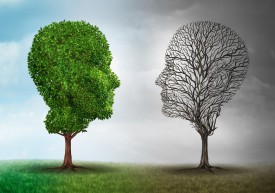Many people wake up during the night due to painful leg cramps, and for most cases, there is no cure yet. Generally speaking, muscle cramps can be caused by excessive use of the muscles, but also due to other causes like dehydration. In many cases, however, the pain is idiopathic, meaning the cause isn’t known, and thus, is no...
Featured Posts
-
The Clinical Reasoning Cycle: The 8 Phases and their Significance
-
How to Use the Coherence Principle in E-learning
-
Clinical Reasoning and Critical Thinking: Integrated and Complementary
-
The Modality Principle: Rationale and Limitations
-
What is Clinical Reasoning and Why is it Important?
-
Applying the Principle of Temporal Contiguity
Antibiotic Resistance in Europe: A Growing Health Threat
Resistance to broad-spectrum antibiotics is rising in Europe. This is concluded in a new report on antimicrobial resistance written by the European Centre for Disease Prevention and Control (ECDC). Resistance to antibiotics poses a severe health threat to patients in Europe, the authors of the report state.
This report was published by the European Antimicrobial Resistance Surveillance Network (EARS-Net) last...
Ups and Downs in Blood Pressure are Just as Deadly as Continuous High Blood Pressure
Extreme swings in systolic blood pressure may be just as dangerous as having high blood pressure all the time. This fact is concluded in a new study from the Intermountain Medical Centre Heart Institute in Salt Lake City.
In the study, researchers examined the medical records of 10,903 patients. Patients who had seven blood pressure measurements between 2007 and 2011...
Eating Almonds Positively Influences HDL Cholesterol Levels
Snacking on almonds may be one of the best ideas for your cholesterol levels! Eating these yummy nuts regularly may have positive effects on the amount of HDL cholesterol in the body and improve its functionality. This has been concluded by researchers from the Department of Nutritional Science at The Pennsylvania State University.
HDL cholesterol (high-density lipoprotein) is considered to...
E-cigarette Vapour Impairs Vascular Function
If you think e-cigarettes are completely safe, you may be wrong! Even a single exposure to e-cigarette vapour could be harmful to blood vessels. This is a fact concluded by researchers from West Virginia University. In their study, researchers looked at the effect of short- and long-term exposure to flavoured e-cigarette vapour on artery diameter, the blood vessel’s ability...
Deep venous thrombosis: What You Need to Know About This Condition
A deep venous thrombosis is a blood clot in a deep vein in the body. A blood clot is also called a thrombus, hence the name. Most often, a deep venous thrombosis occurs in a vein of the leg, but it can also occur in a different deep vein. In this article, the focus will be on a blood...
Is Sleeping With Pillows Unnatural?
Every human spends around a third of his or her life sleeping. We all know that a good night’s sleep is necessary if you want to perform well the next day. This makes it very important to try to make the most out of those nightly hours spent snoozing. And what better way to get comfortable than to use...
Tiny Robots May Just Be Traveling in Our Bloodstream Soon!
Robotics in medicine has been used for quite a while now. A good example of this is the surgical robots that revolutionized minimally-invasive surgery. A relatively new field of research is the combination of material science and biomedical science, making it possible to implement medical robotics at the micro- and nanoscale. Miniature robots that can perform various precision tasks...
Are Vitamin and Mineral Supplements Doing More Harm Than Good?
The society we live in today offers us a large abundance and variety of healthy foods that aren’t all that expensive anymore as they once were. Mainly because Europe is a wealthy continent, most of the population can afford these healthy products. For several years now, health has been an important topic for people, and food industries and other...
Can a Bad Night’s Sleep Affect Your Ability to Learn?
A lot of people know from experience that a bad night’s sleep can affect your day in a negative way. Up until now, however, the casual relationship between sleep deprivation and learning efficiency has not been proven. Thanks to researchers from the Swiss University of Zurich, we’re one step closer to unraveling this mystery. Their published article in Nature Communications...
A Vaccine for Treating Hypertension is Now a Possibility
Around one billion people in the world suffer from hypertension. Having a high blood pressure increases the risk for numerous diseases, like stroke and heart problems. Therefore, it is important to treat this condition immediately.
Luckily, numerous drugs for the treatment of hypertension are widely available. Beta-blockers, ACE-inhibitors, calcium-antagonists, and diuretics are commonly used pharmaceuticals against hypertension. Currently, researchers...
Probiotics – A Brief Timeline and Where We are Now
Probiotics may seem like one of those new health trends, but actually, they’ve been around since the ancient times! Probiotics have been defined as microorganisms, either bacteria or yeast, which are alive and have to be used in a specific dose and should have a proven benefit on health.
Here’s a short timeline on how probiotics have become well-known in...
Why is Cardiac Rehabilitation a Must?
Did you know that if you have had a heart attack or any other heart problem, a certain therapy called cardiac rehabilitation (cardiac rehab) is an important part of your recovery?
What is Cardiac Rehab?
Cardiac Rehab is a medically supervised program for people who have had a heart attack or other heart problem that needed surgery or medical care. It’s...
Gallbladder Inflammation Symptoms: Signs, Duration and Complications
The gallbladder is a pear-shaped organ located near the liver in the right side of the abdomen. Its function is to store and release bile. Bile is needed for fat digestion in the digestive system. Gallbladder inflammation, also known as cholecystitis, is in 90% of the cases due to gallstones. Gallstones are common in the US, affecting about 20%...
Successful method reduces myocardial cell damage and extends life in patients suffering from heart attack
Chest pain is the first symptom of a heart attack. Irreversible cell death occurs as a consequence of the occlusion of one or more coronary arteries. Hector Cabrera, a microbiologist, has developed a new treatment that could reduce this cell death by as much as 17%.
Cabrera carried out a study on chronically ill patients with hypertension and diabetes who...
Saliva May Provide Early Test for Parkinson’s disease
Millions of people in the world are living with Parkinson’s disease. A lot of patients are diagnosed every year, but thousands of cases go undetected. Such a situation should change and this might just be possible with a saliva test. This is interesting news especially for general doctors, neurologists, and medical students.
Parkinson’s is a degenerative neurological disorder affecting movement,...
Omega-3s: could genetically modified oil seed crops replace fish?
The world’s population is expanding and the demand for food increases every day. However, earth’s supplies are limited. Polyunsaturated fats, such as omega-3s, are essential to a healthy diet. Omega-3s are particularly found in fish oil, but the supplies of fish are finite. Could a genetically modified oil replace fish?
A new type of omega-3 enriched oil, called Camelina oil,...
E-cigarettes impair immune responses more than tobacco
We all know that cigarette smoking has a negative impact on health.. General doctors and other health care professionals should especially try to help people quit smoking. Some people, however, switch from cigarettes to e-cigarettes, assuming that the latter is a safer alternative. Surprisingly, research reveals that some contents of e-cigarettes could be as risky as tobacco.
The smoke of...
Energy drinks: adverse heart reactions linked to more than two per day
Energy drinks have become an increasingly popular beverage of choice, particularly among young people. Studies indicate, however, that there is a side effect of consuming more than two energy drinks per day. General physicians and other health care professionals should be informed about these negative effects.
Energy drinks are consumed extensively by people who wish to reduce fatigue, increase wakefulness...
E-cigarettes weaken immune system
A new study from the University of California-San Diego (UCSD)
In the last decades the dangers of smoking cigarettes have clearly been demonstrated. Cardiovascular disease and lung cancer are the most common complications of continuously inhaling toxic agents. As a result of these dangers, modern industrial companies have developed several types of so-called “e-cigarettes”. The new cigarettes are widely used...
Diabetes during pregnancy linked to low breast milk supply
The benefits of breastfeeding for both mother and baby are well-documented. However, breastfeeding is not naturally easy for every woman. More and more factors that lead to difficulties with lactation are being discovered. General doctors and health care professionals involved in mother and child care should be well-informed about these factors.
It is already known that obesity in women appears to...
Cranberries can help treat urinary tract infections, but not cranberry juice
Urinary tract infections (UTI’s) are a problem experienced by millions of people, a majority being women. Drinking cranberry juice has been one popular advice to prevent or even treat a urinary tract infection. However, a new study suggests it could just be an old wives’ tale. This is important especially for general physicians to know, as they regularly see...
Being lazy might shrink your brain
In the modern world, people are getting lazier and lazier. We work from behind the computer and lie on the couch watching television while eating chips. We all know that there are certain risks associated with this lifestyle, and since those risks are on every medical level, this article involves all physicians.
The benefits of fitness are well known. An...
Researchers created ‘autistic monkeys’ in controversial study
In China, researchers have created genetically modified monkeys that develop autism-like symptoms. This controversial study was recently published in the journal Nature. The researchers used gene editing techniques to insert the human gene MECP2 into the monkey genome. Mutations in the MECP2 gene, or multiple copies of the gene, are linked to the development of autistic spectrum disorder (ASD)...
Oestrogen supplements could reduce dementia risk in women
The risk of dementia in women could be reduced when women take oestrogen supplements before or at the start of the menopause and continue taking them for a few years. This conclusion is drawn from findings in a doctoral thesis from the Norwegian University of Science and Technology. In the corresponding study, brain MRIs of women who had been...
Coffee lovers rejoice: regular caffeine does not cause extra heartbeats
This study is published in the Journal of American Heart Association and led by Dr. Gregory Marcus, a cardiologist from the University of California-San Francisco.
It is a popular belief that regular caffeine intake leads to palpitations or extra heartbeats. This comes with the risk of heart problems, stroke, and even death in rare cases! However, this new study questions...
Cervical cancer: the importance of regular screening.
Cervical cancer, a cancer that affects many women. Fortunately, more and more women undergo regular screening and as a result the number of deaths has decreased significantly. However, each year a lot of women still die, suggesting that there is still more that can be done to combat the cancer. It is important to emphasize the importance...
New alcohol advice issued
UK figures show alcohol-related deaths are rising. In 2014 8.697 deaths were registered in the UK – 14,3 per 100.000 people of the population. On January 8th the Chief Medical Officers of the UK have published new guidelines for alcohol consumption in order to limit related health risks. What’s new since the previous guidelines came out in 1995? Learn...
Depression may pass from mothers to daughters
This study is published in the Journal of Neuroscience and led by Dr. Fumiko Hoeft by the University of California-San Francisco.
Depression, a disease we all know. Worldwide, millions of people are affected by depression. Fortunately, we have effective medication and a lot of risk factors are known. However, the precise pathophysiology remains unclear. In one of the latest studies...
3D-printed heart can be beneficial for complex heart surgery
A presentation at the European Association of Cardiovascular Imaging EuroEcho-imaging 2014 conference.
Congenital heart disease often needs a complex and invasive surgical procedure to create a well-functioning heart. Trained Cardiothoracic surgeons have to plan an adequately approach and technique to operate safe and repair defects. Currently, these plans are based on CT- and MRI-scans made pre-operatively. Despite these modern scans...
Brain levels of vitamin B12 decrease with age and are prematurely low in people with autism and schizophrenia
A study found that brain levels of vitamin B12 are significantly lower in elderly people and are even lower in people with autism or schizophrenia, compared to peers at similar ages. The authors explain that these findings are interesting, because the levels of B12 in the blood do not show these differences. This lack of vitamin B12 in the...
Troponin T test provides possible one hour diagnosis of heart attack
A new cardiac troponin high sensitivity test by Roche reduces the observation time that is needed to diagnose a heart attack by troponin from 3 -6 hours to just 1 hour. This much faster diagnosis can lead to better prospects for patients who suffer from a heart attack, because fast treatment is essential as 30 minutes of delay increases...
Researchers study hospital readmissions from post-acute care facilities
Researchers from the University of Colorado School of Medicine found specific risk factors that may contribute to the need for readmission to the hospital after a stay in post-acute care facilities. Of these readmissions, nearly half occurred within 14 days after leaving the hospital. The need for invasive devices, for instance a feeding tube or urinary catheter, and advanced...
Better outcomes for pregnant women at trauma centers
A new study from the State of Washington, USA
Traumatic events during pregnancy are a subject of minor attendance. Unfortunately, approximately 8 percent of pregnant women sustain traumatic injuries. These injuries can result in major problems for both mother and neonate. Neonatal complications are preterm labor, low birthweight and meconium at delivery.
There are different types of trauma units in the...
There is a need to recognize heart attack symptoms more quickly
Patients suffering from a heart attack could limit damage to their heart, if they recognized symptoms earlier and if they sought immediate treatment.
An ST-elevation myocardial infarction (STEMI) is a life-threating condition in which one or more coronary arteries is occluded by a thromboembolism or another pathological mechanism. The door-to-balloon time is the interval of time that goes from the...
Cancer screening has never been shown to ‘save lives’, argue experts
A new report argues that cancer screening has never been shown to save lives, although the harms of screening are certain. The authors state this is because of reductions in disease specific mortality rather than in overall mortality. They therefore claim that overall mortality should be the benchmark against which screening is judged and call for higher standards of...
How obesity promotes colorectal cancer
Scientists discovered a biological relation between obesity and colorectal cancer. In addition to this, they have identified a drug that might prevent the development of colorectal cancer. The researchers found that obesity is associated with a decrease of the human Guanylin in the intestines. This decrease leads to deactivation of a tumor suppressor pathway. Compared to lean people, morbidly obese...
Sleep quality affected by eating habits
A recently published study in the Journal of Clinical Sleep Medicine, suggests that eating products with little fiber and much saturated fat, negatively affects your slow-wave sleep. This is an important stage of sleep where physical and mental energy is restored. The investigators also found that food with a lot of sugar is linked to more sleep disruptions.
The participants...
Stroke risk for older men who take alpha-blockers
This new study was published on the Canadian Medical Association Journal and was led by Dr. Chao-Lun Lai, from the National Taiwan University Hospital, Hsin-Chu Branch.
Stroke costs a lot of lives each year and has far reaching consequences. In America stroke kills nearly 130,000 people each year, which means that every 4 minutes an average of one American dies...
Zika virus: causes, symptoms and treatment
On the first of February 2016 the World Health Organization (WHO) has labeled Zika “an extraordinary event” and announced that Zika virus in Latin America is a global public health emergency. Moreover the Center for Disease Control and Prevention (CDC) has issued travel warnings for people traveling to areas where Zika virus transmission is ongoing. But what does this...
Sugary drinks linked to increased heart failure in men
A Swedish study found that men who consume more than 400 ml of sugary drinks per day, have a 23% increase in the risk of heart disease compared to men who never or rarely consume these drinks. 42,000 Swedish men completed a food questionnaire in 1998. An observational study was carried out during a 12 year follow up to...
Sugar: should we eliminate it from our diet?
Sugar seems to have developed a reputation as the big bad wolf in relation to health. In numerous studies sugar intake is associated with increased aging, cardiovascular disease, obesity and even cancer. Therefore, some experts recommend to reduce sugar intake or to eliminate it completely. But is it really that bad for our health? This review should give some...
Specific coffee chemicals may ward off type 2 diabetes
This new study was led by Soren Gregersen and colleagues at the Department of Endocrinology and Internal Medicine at Aarhus University Hospital in Denmark.
Coffee and diabetes, two commonly covered topics in the media. A lot of people drink coffee every day, in America more than half of adults drink it daily. Type 2 diabetes is a common disease, striking...
Olive Oil and wholegrains ‘lower heart disease risk’
An extensive study among 130,000 people found that unsaturated fats, such as olive oil, walnuts and whole grains lower the risk of heart disease compared to saturated fats. Participants have filled in a questionnaire and have been followed for 30 years. The questionnaire was repeated every four years during the follow up period, so that changes in diet of individuals have...
Men, take note: eat more fruits to reduce risk of erectile dysfunction
This new study is published in the American journal of clinical nutrition and led by Aedin Cassidy.
Erectile dysfunction can be one of the most distressing conditions a man experiences. It is estimated that around 30 million men in the US have erectile dysfunction. Men over the age of 60 are at greatest risk, though it occurs in around 12%...
Heart valves made from tissue rather than metal may be better for middle-aged patients
Patients aged between 40 and 70 years that need replacement of their aortic valves may benefit from bioprosthetic (donor tissue) valves rather than mechanical (metal) valves.
People that need aortic valve replacement (AVR) can choose between the two mentioned types of replacement. Both valves show equal mortality and morbidity rates 15 years post-surgery. However, each prosthetic valve has his own...
Heart failure drug digoxin linked to premature death
An extensive meta-analysis of nineteen studies that was carried out by the German Goethe University showed that digoxin, a first choice drug used in the treatment of heart failure, actually increases the risk of death. A total of 235,000 cases of heart failure was taken into account in this study.
Though digoxin is known for its potential benefits, it is notorious for its dangerous...
Estrogens may weaken flu virus in women
This new study was published on the American Journal of Physiology – Lung cellular and Molecular Physiology and led by Sabra Klein.
The flu, a disease we are all familiar with, is an infectious disease caused by an influenza virus. Viruses make us ill when they invade our cells and use their machinery to make copies of themselves. The copies...
Eating chocolate linked to ‘lower heart disease and stroke risk’
Moderate chocolate consumption: a way to reduce cardiovascular risk?
In recent years, multiple articles by the media cover the possible beneficial health effects of chocolate consumption, especially in reducing cardiovascular disease. But what is the extent to which this can be taken seriously and what kind of implications does this have for clinical practice?
In a study conducted by the University...
Cardiovascular disease is top killer in US
Cardiovascular disease, such as heart disease and stroke, are responsible for one third of the deaths in the United States. Heart disease and stroke together also appear to be the main cause of death worldwide. It is important to collect data about the main causes of death, in order to achieve better prevention and treatment for these diseases. Though...
Broken sleep raises risk of stroke
A study that was carried out by the University of Toronto, Canada, has found a correlation between sleep fragmentation and brain damage. Some changes in sleeping habits are caused by medical or psychiatric conditions. However, most changes are part of normal aging. When people age, their circadian rhythm changes. Elderly people tend to become sleepy in the early evening...
Blocking brain inflammation ‘halts Alzheimer’s disease’
This new study was published on the Journal Brain and funded by the Medical Research Council and Alzheimer’s Research UK.
Alzheimer’s disease is a big health problem. It accounts for 60% to 70% of the cases of dementia. In 2015, there were approximately 48 million people with Alzheimer’s disease worldwide. With an aging population and no new dementia drugs in...
A biomarker for bipolar disorder
A recent trial performed by the Mayo Clinic (Minnesota) tried to identify protein markers indicative for bipolar disorder. This could be of great help in diagnosing patients and in distinguishing different forms of bipolar disorder. Patients with bipolar disorder, formerly known as ‘manic depression’, experience heavy changes in mood and activity levels. They vary from feeling great and extremely...








